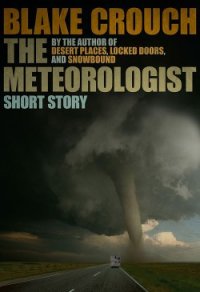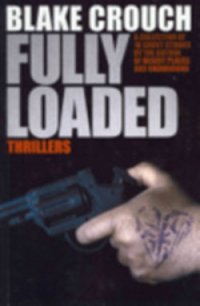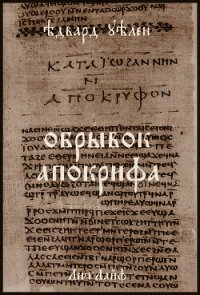Einstein's Monsters - Amis Martin (книги без регистрации бесплатно полностью .TXT) 📗
When the danger of predation is great, communities of whatever phylum tend to interknit more closely, and hierarchical roles become sharper and more keenly contested. Or at any rate that's the idea. This particular community, for instance, had long lost all genetic heft. Probably their best bet would have been to move out and go nomad for a while. But site-tenacity was, alas, pretty well the only stable element in the local DNA transcription. How could you run when, in your head, this was the only place?
With a square meal inside him, and a decent cadaver to nibble and gnaw on, the dog would be gone for seven nights. This seemed a clear gain, after the post-Queer chaos, and in fact everyone was secretly impressed by the dog's asceticism in restricting himself to one human per week. It would take him at least a couple of years to account for them all. That Shunday, however, brought unpleasant surprises.
On his last sortie the dog had forced his way into the spare-husband compound and selected his victim from the fifteen men who huddled there. In the skirmish three spare husbands had been wounded or nicked by the dog's teeth and claws. By Moanday afternoon they had swelled outland-ishly in the belly and sprouted coarse hair on their backs and buttocks. All three died during the night, in speechless horror. On Woundsday it was reported that seven spare husbands who had merely come into contact with the dog's coat had developed cutaneous conditions of incredible virulence; they, too, passed away, in a frothing nightmare of serpigo and yaws. By Fireday the remaining four men- who had done no more than smell the dog's breath- checked out with toxic shock.
The women's thoughts naturally turned to the child pool, housed in a none too sturdy structure just behind the spare-husband compound. Well, I say "naturally," but it should be stressed that things had quieted down very noticeably on the bearing-and-caring circuit, the operative genes being, if not selfless, then fairly unambitious in tendency. So were they all meant to die, quickly, without a fight? Nothing wants to evolve but everyone wants to survive. We just don't want to go. Even when life is poor, and mostly fearful, and there are pressing reasons to quit-we don't want to. We don't want to go.
Again there was talk, and the sending of messages, and the distraught husbands making their rounds. At noon on Shatterday, as if by mass somnambulism, the entire village gathered in the crater by the swan-neck of fire. Yes, Andromeda was there with the little puppy, reflexively shielding him from the grimaces of the crowd. They all knew what was going to happen-knew it with exhausted shame, with a consciousness of falling far short of any human destiny. Royene and Clivonne presided over a stout barrel. The villagers then filed past, each of them dropping into the tub a personal possession-a scarf, a tool, a headband, an earring. There were no exceptions. Tom held the little puppy as Andromeda took her turn. At last Kevinia strode forward, looked around about her, and rolled up her sleeves, her hard face shining in the silent heat. It was at that moment that the little puppy barked-barked at Kevinia! He even started growling. Kevinia stared on, with scandalized disdain, as Andromeda fought to contain the little puppy, and with Tom's help eventually subdued her struggling, snapping charge. So it was with the extra radiance of flame-eyed rectitude that Kevinia reached into the barrel, held aloft and then, with a gesture of explanation, of disclosure, dropped to the ground the little red ball.
The sky said war. "War," declared the sky. Up above, the evening stars were sending light, the nuclear way, their fuel-counts stretched by vast equations, pulsar, quasar, giant, and dwarf-and Andromeda burning, too, in rich implosions, changing and charging through the electric firmament. Below, the clouds looked as hard and clearly etched as granite, the work of abrupt propulsions, strong interactions…
Now the little puppy lay in the arms of his mistress, for the last hours. His senses all had missions: to find a way through the veils of her grief and, perhaps, to help assuage it. His passionate vigilance also had an animal edge. You've seen those puppies at the playground or the seaside, tethered to a fence while the whole world romps and dances. This is the maximum puppy suffering; it stings far worse than hunger. But now the little puppy went through that pain to the other side, twisting and tugging within himself, just to hold the grief and make it lighter. "Thank you, Jackajack," Andromeda murmured, as she felt the hot squirm-ings-the unbounded willingness-of his love. Their little room held a blushful glow: early to bed in summer, curtailment, just exclusion. Andromeda had the pride to meet her fate, like a woman. But she didn't want to go. She thought of escape, of flight (no one would have stopped her), just herself and the little puppy. It was a big bare planet now, though, and very lonely. Great emptinesses pressed in on the human place. Andromeda had the pride. But she didn't want to go.
Soon they heard the apologetic whispers in the yard. Keithette sat at the round table, deep in her own drama. She would not, she would never say good-by. Tom looked up shyly (still tired and faint after four hours of unpunctuated cunnilingus). "I'm going now," said Andromeda, and she thought: What strange creatures we are- really. "I'm going now. Good-by, Jackajack," she said. "Stay… Stay."
The dog was coming. Already you could sense his maimed skirling as it poured forth, over the hills. Flanked by her two husbands, the burly Kevinia led Andromeda to the lip of the great concavity, down the widely looping path, down to where the fire was eating its meal of dusk. The ugly crucifix stood there waiting, like a Queer. Kevinia gave instructions. Number-one husband secured Andromeda's little hands, relying on number-two husband to bind her little feet. She looked from face to face, but nothing was said and they soon hurried away, back up the winding path. And so Andromeda stared at the fire, its sprites and genies and their pure pandemonium.
Unevenly the homovore sidled through the outskirts of the village, the heavy threads of saliva whirring-almost rattling-in savage nostalgia as he passed the site of some earlier kill or decisive mangling, the jaws slackly ajar and then cracking shut in a vestigial spasm, the nailed talons splitting and spoking on the bare earth. There he goes now, very horribly, the needled fur, the flapped and misshapen genitals, the fifth leg protruding from the rear like the aftermath of some deeply injudicious sexual exploit. The Natural Selector. Although resilient himself-he could pretty well boast pan-immunity-the dog was boiling and bursting with whole ecologies of trapped viruses, germs, and microbes: anthrax, foul brood, rinderpest, staggers, scours, glanders, hard pad, sheep rot, and mange. He shimmered like heat haze. The flowers were always dead where the dog had slept.
We all know the normal posture of the village when the dog was on its way. It played dead. In humiliated torpor it hid its human face. But on this night of sacrifice, of new nausea and defeat, the shouldered heads would not bow to receive their blows. Why? It was Andromeda, it was pride, it was beauty-was it also, perhaps, in some perverse way, the girl's championship of the little puppy? Now you could feel the low rumble of hot temper, of petulant mutiny. Among the clustered cabins, windows and even doors were thrown open, and husbands appeared, shouting and waving their arms, while the women, too, jeered and hated, trying and trying to hate the dog away.
Not that the dog seemed much abashed by this treatment. After a few stupid pauses and directionless snarls (the snarls like weary swearing), he moved on, toward the ring. Stupidly, he paused again, as some rogue cramp or seizure coursed through his system. In truth he looked far from well. His diet was surely getting to him. Yes, even the dog was capable of deteriorating on such a regime: these days he wasn't so friendly with his own emanations, and could deck himself with a single burp… He came to the edge of the circle. With scarlet eyes he peered down through the distorted air-and saw a figure, ready at the stake. He grunted, and started down the track: this was good, this was more like it, this was the way things were supposed to be run. Halfway down he looked up and saw the emboldened villagers gathered at the crater's rim, all around him, full of noise and gesture. What's the big deal? the dog seemed to wonder, and turned, and stared down through the tips of the flames to inspect the sacrifice, confident that he would find the usual knucklewalker or nervously yawning throwback tethered to the post. When he saw the little brown limbs, writhing (as indeed everything was writhing down there), the dog's stomach thumped and rumbled, and a pint or two of smoking saliva slopped from his mouth. Slowly now, with anticipation, with due reverence, the dog moved down the curling track.

![[Magazine 1968-012] - The Million Monsters Affair - Davis Robert Hart (читать книги TXT) 📗](/uploads/posts/books/56864/56864.jpg)


